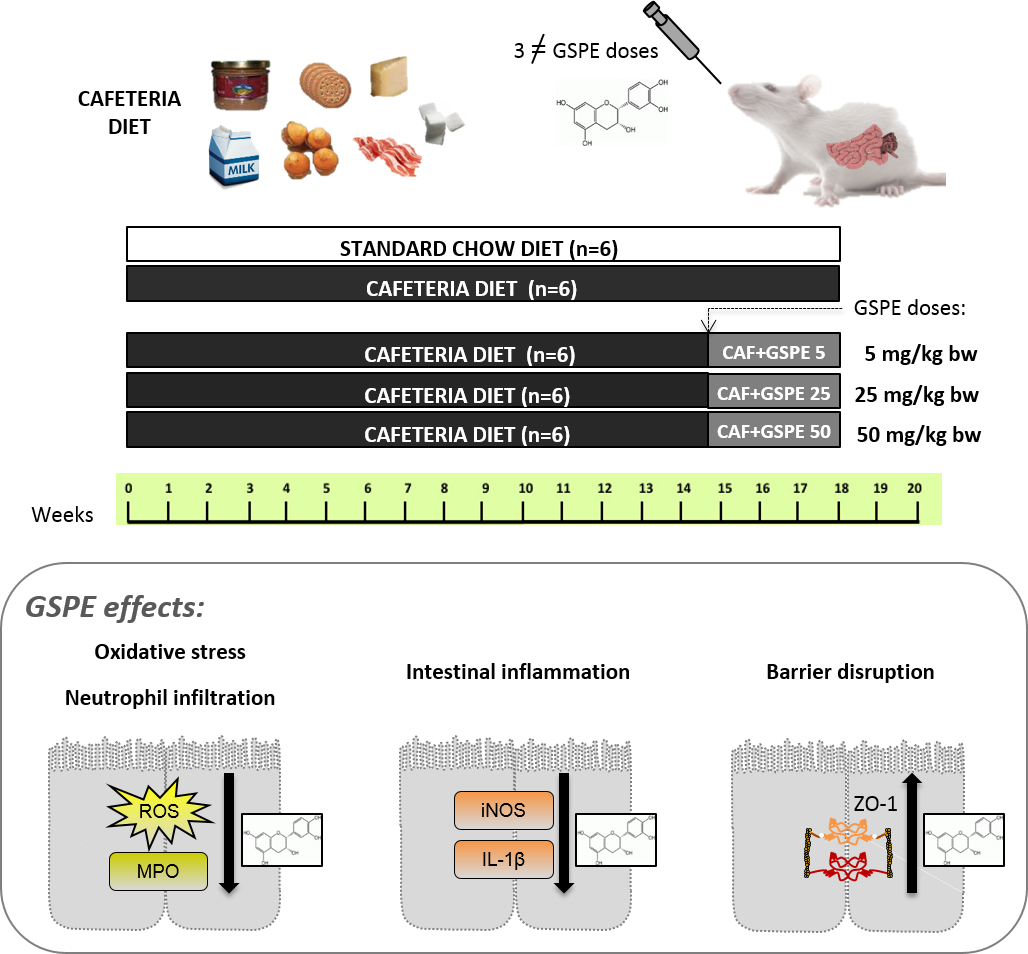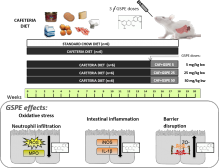Recently published paper in the journal Molecular Nutrition and Food Research
General -
Abstract
Scope: Increased attention has been paid to the link between altered intestinal function and elevated incidence of metabolic disorders, such as in obesity. The present study investigated in obese rats the role of grape seed proanthocyanidin extract (GSPE) chronic treatment, taken in a low, moderate or high dose, on obesity-associated intestinal alterations in response to a cafeteria diet (CAF).
Methods and results: To evaluate the degree of intestinal inflammation, ROS production and MPO activity were measured as well as the expression of inflammatory related genes. The barrier integrity was assessed by quantifying the gene expression of tight-junction components and measuring the plasma LPS. GSPE decreased the ROS levels and MPO activity, without substantial differences among the doses. The supplementation with moderate and high GSPE doses significantly decreased iNOS expression compared to the CAF group, and the same pattern was observed in the low dose animals with respect to IL-1β expression. Moreover, the results show that GSPE significantly increases ZO-1 expression with respect to the CAF animals.
Conclusion: This study provides evidence for the ameliorative effect of a proanthocyanidin extract on high-fat/high-carbohydrate diet-induced intestinal alterations, specifically reducing intestinal inflammation and oxidative stress and suggesting a protection against a barrier defect.


